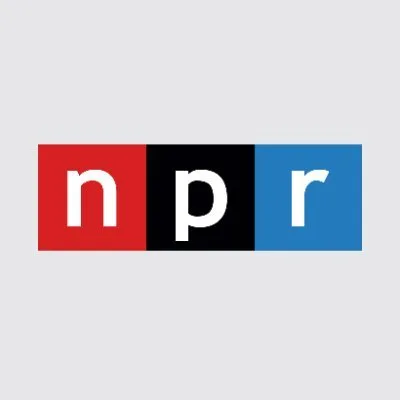
Cash is a proven anti-poverty tool for communities in Kenya.
We leverage over a decade of experience to deliver cash efficiently and effectively in Kenya.
Sources: FSD Africa, FCDO, Egger et al 2022, Haushofer and Shapiro 2016
FEATURED ACTIVE Programs

REFUGEES
Cash+ Financial Inclusion for Refugees
Piloted in 2022 and scaling up in 2024, this program aims to lift vulnerable urban refugees in the Nairobi metropolitan area above the local extreme poverty line through large, unconditional cash transfers. Recipients have the option to participate in additional identified services to support long-term resilience and self-reliance.
Transfer Size
$925 across 2 payments (pilot)
Households Reached
1,182 (pilot)
Outcomes
This program builds on two other GiveDirectly large transfer programs for refugees in Uganda and Rwanda. Refugees often choose to settle in cities because of the independence and economic opportunities they provide. However, they can struggle to receive formal support in their host communities. It can be challenging for urban refugees to access financial systems, find sources of income, and secure their livelihoods.
So far, recipients report increased financial well-being:
- 6 months after receiving cash, recipients’ average income was 81% higher than it was before the program.
- 75% of previously unbanked recipients were able to open bank accounts and gain access to financial tools.
- Recipients were able to invest in existing businesses (29.5%) and start new ones (14.7%).
See how refugees are using cash to change their lives →
Partners
IKEA Foundation, REFUGE Point, UNHCR, Department for Refugee Services, Equity Foundation, Equity Bank

Poverty Relief
Large Cash Transfer
Ongoing program launched in 2009 to deliver large, unconditional cash transfers to households in the poorest communities in Kenya, mostly in Kilifi, Bomet, Baringo, Kisumu, Siaya, and Homa Bay counties.
Transfer Size
$1,000
Households Reached
102,322
Outcomes
This program builds on the cash transfer model evaluated by Haushofer and Shapiro, 2016. Based on the results of the study and combined with information reported by recipients, the project impacts include:
- ~60% increase in high-value assets (savings, metal roofs, livestock, etc.)
- ~34% increase in household income compared to before the program
- Improvements in mental health
- Improvements in children’s health outcomes
- Surveys of recipients and non-recipients living in nearby communities found that $1 of cash delivered generated ~$2.50 in additional spending or income for the local economy

CLIMATE SURVIVAL
Basic Income for Climate Survival
Program launched in 2021 to deliver monthly cash transfers to households in Kaloleni, Kilifi county for 5 years. Transfers are sized to support food security and resilience to climate shocks for vulnerable households in rural communities.
Transfer Size
$30 monthly transfers for 5 years
Recipients Reached
3,786
Outcomes
Kilifi County, like other parts of Kenya, is experiencing a protracted drought that is putting vulnerable communities at even greater risk. This program targets communities to support resilience to climate climate-related shocks, increase access to quality health care and dignified housing, and facilitate the creation of sustainable livelihoods.
Many recipients report using the cash to ensure food security and access to education for themselves and/or their children, as well as saving for the future are top priorities.

Basic Income
12-Year Basic Income Study
Since 2017, GiveDirectly has led the world’s largest and longest study to date studying the effects of a Universal Basic Income. As part of this $30M project, we have distributed millions of dollars to ~23,000 individuals living in Bomet and Siaya counties across 195 villages, and an additional 100 villages have been surveyed as a control group. Some individuals will receive payments for 12 years, and the full study will last at least that long.
Transfer Size
- Long-term UBI: $22.50/month for 12 years
- Short-term UBI: $22.50/month for 2 years
- Large lump-sum: one-off $500 payment (comparison group)
- Control: no transfers
Recipients Reached
23,000
Outcomes
UBI could plausibly affect a wide range of outcomes and behaviors, from what families eat and how they interact with each other, to broader macroeconomic or cultural dynamics. Based on the first 2 years of data (2018-2020), the research team has found:
- A monthly universal basic income (UBI) empowered recipients and did not create idleness. Recipients invested, became more entrepreneurial, and earned more. The common concern of “laziness” never materialized, as recipients did not work less nor drink more.
- Both a large lump sum and a long-term UBI proved highly effective. The lump sum enabled big investments, and the guarantee of 12 years of UBI encouraged savings and risk-taking.
- A short-term UBI was the least impactful overall but still positively affected nutrition and psychological well-being. A 2-year-only UBI was less impactful on economic measures than the large lump sum or long-term UBI, despite each group having received roughly the same amount of money by the 2-year mark.
- Governments should consider changing how they deliver cash aid. Short-term monthly payments, which this study found to be the least impactful design, are the most common way people in both low- and high-income countries receive cash assistance, and it’s how most UBI pilots are currently designed.
FEATURED PAST Programs

Poverty Relief
Cash for Youth Entrepreneurship
From 2018 to 2020, this pilot program provided cash grants and a smartphone to youth living in Mathare, Nairobi. The cash was unconditional, and participants were provided with information about investing, growing and existing businesses, and income-generating activities.
Transfer Size
$1,200 per person
One group of recipients received this amount across 3 payments spaced months apart
Recipients Reached
1,000 youths
Outcomes
By the end of the program, recipients had invested nearly one-third (~31%) of their transfers in new or existing businesses, including agriculture. Those who received 3 payments used slightly more of the cash on productive investment, which includes spending on education for themselves or others.
Evidence suggests that participants in the project were more likely to engage in entrepreneurial behavior, — 64% of recipients reported being self-employed at the end of the program, compared to 37% at the start.
Partners
Community-Based Organizations, MasterCard Foundation, FSD Africa, Google Impact Challenge Fund

Poverty Relief
Cash+ Women’s Empowerment
2020 program designed to reach women operating informal businesses in the Kibera and Mathare sub-counties of Nairobi. Focused on those who lost their livelihoods due to the COVID-19 pandemic.
Hear more from Eunice (pictured) and other women who took part in the program here →
Transfer Size
$1,290 total — $70 per month for 5 months, followed by $470 per month for 2 months
Recipients Reached
500 women
Outcomes
Recipients received cash as pandemic lockdown measures disrupted markets in Nairobi. After receiving funds, the women reported investing in their businesses (36%) and better food security (69%). 29% of recipients paid education expenses for a family member or someone close to them.
Partners
SHOFCO, Google.org, FSD Africa

EMERGENCY RELIEF
COVID-19 Relief
This program provided relief payments in 2020 to vulnerable households in informal settlements in Nairobi, Mombasa, and Kisumu counties, as well as to hospitality sector workers who had lost their jobs due to the pandemic across 33 counties.
Hear from Patrick (pictured) on how he used his pandemic relief cash here →
Transfer Size
$120 disbursed over 3 and 4 months
Recipients Reached
173,814
Partners
Ministry of Labour and Social Protection, Community-Based Organizations, MasterCard Foundation, FSD Africa, Google Impact Challenge Fund

Poverty Relief
Cash+ Women’s Workforce Readiness
Program launched in 2022 that couples cash with construction skills training. Aims to improve economic inclusion and workforce readiness among socioeconomically disadvantaged women in Nairobi, Kenya while promoting gender equality in the construction sector.
Transfer Size
6 monthly transfers of $50, followed by a one-time payment of $575
Recipients Reached
500 women
Outcomes
We delivered unconditional cash alongside the construction skills training course to enable recipients to buy tools, equipment, and other materials they might need to set up a business or participate in the construction sector.
While attendance at the training session was high at the start (80%), we saw a 14% increase by the time recipients received their last transfer.
93% of recipients also report an increase in their income level, with an average increase of 39% in income. 80% of recipients also report an increase in their savings — 75% on average.
Partners
Buildher
Poverty in Kenya
Today, one-third of people in Kenya live on less than $2.15 per day. The share of people in poverty has remained largely unchanged in the past decade, despite $2BN+ per year in development assistance since 2010.
Poor communities lacking access to basic needs further contend with the effects of climate change, armed conflict, and income inequality. Long-term drought and flooding risk have disrupted agriculture, food security, and livelihoods nationwide, leaving nearly half of children under five in some regions stunted from malnutrition (the average rate of stunting is 25% nationally). Ongoing armed conflicts in nearby Somalia, South Sudan, and the DRC have also driven substantial numbers of refugees to Kenya, 77% of whom are women and children.
The Kenyan economy contracted for the first time in 30 years during the COVID-19 pandemic, leaving many informal sector workers jobless. Today, opportunities for young people and women remain limited, with nearly two-thirds of people under 24 unemployed. 75% of people who are out of work and not in school are women despite similar levels of education for girls and boys.
The Government of Kenya utilizes cash transfers to support vulnerable groups in their Kenya Vision 2030 plan, including a safety net program of ~$15 per month for elderly and orphaned/vulnerable children, in service of making Kenya “a globally competitive and prosperous country with a high quality of life by 2030.”
Sources: Kenya National Bureau of Statistics, World Bank, Kenya State Department for Economic Planning, Kenya Vision 2030, UNHCR, UNICEF, IFPRI


















